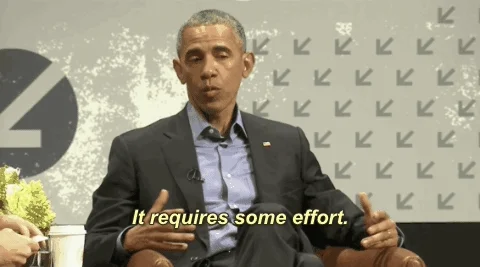
This logo isn't an ad or affiliate link. It's an organization that shares in our mission, and empowered the authors to share their insights in Byte form.
Rumie vets Bytes for compliance with our
Standards.
The organization is responsible for the completeness and reliability of the content.
Learn more
about how Rumie works with partners.
If you love studying the past, you might pursue a degree in history at university. Like other liberal arts disciplines, history is known as a stereotypically less "employable" major, but that doesn't mean you can't find opportunities.

Some careers are defined by the college degree you obtain. Doctors must have a degree in medicine, engineers must study engineering, and so forth. Others, however, are open to a far wider range of educational backgrounds.
It might seem daunting to find the right profession, but there are jobs where having a background in history is a great asset!
1. Become a history teacher
In becoming a teacher, your degree is not only an advantage, but a requirement.
You'll need a teaching license, often obtained separately from your degree. In some schools, you might eventually need a master's degree in education in addition to your history degree, which you can obtain while working at the school. Your school might even subsidize your master's studies.

You should keep in mind that the pay may vary depending on location. The average salary range for teachers in the U.S. and Canada around 2021-2023 is as follows:
2. Work in a museum
 Photo by Kaiyu Wang on Unsplash
Photo by Kaiyu Wang on UnsplashAnother area where your studies will be an advantage is museum work. Possible job titles in this realm (along with average U.S. salaries) include:
Archivist: help preserve and store historical documents ($51, 386) 📜
Docent: lead guided tours through the museum ($41,940) 👩🏻🏫🏺
Development associate: help raise and manage funds for the museum (salaries vary widely depending on the institution — in some places, you can earn as much as $80,000per year) 💵
3. Work for the government

Working as a public servant could be a stable career for you. Many government jobs require workers to write well, demonstrate an analytical mindset, and possess knowledge about the world. These skills are easily transferrable from a history degree!
Some government roles especially well-suited to history majors (along with average U.S. salaries) are:
Intelligence analyst: analyzes government information ($61,000)
Foreign service officer: assists in international affairs and diplomatic programs abroad ($100,000)
Congressional aide: assists members of Congress in legislative tasks ($52,000)
Quiz
Anna is preparing for an upcoming interview for a government job. Which skills should she emphasize when speaking about her educational background?
Studying history in college imparts writing and analytical skills, which employers of all kinds value, but especially those in government.
4. Work in business
The field most likely to make you lots of money is business! A history degree can provide a solid foundation for different types of business careers, such as marketing, public relations, and content strategy. There are too many to count!

Salaries vary massively by field, experience, and company. Obtaining a minor or double major in a business-related field during your university studies could give you the added knowledge you need to impress companies.
Quiz
If you want to get a well-paying, fast-paced job with a history degree, which job would likely be the WORST fit for you?
A museum docent only makes an average salary of about $41,000 U.S. a year.
Did you know?
If you're looking to get your foot in the door in any field (especially business), it's a great idea to start looking for internships early on in your college career so that you have relevant experience in your chosen field by the time you graduate.
Take Action
Whether you're wondering whether to pursue history studies, are already a history major, or are a recent graduate, there are many routes you can take to a successful career with an undergraduate history degree.
Before you ask yourself, "What can I do with a history degree?" you you might want to ask yourself these questions first:
Although figuring out your career goals with a history degree can be a challenging journey, with determination and hard work, you can be successful!

This Byte has been authored by
Brenda Lebron
Instructional designer